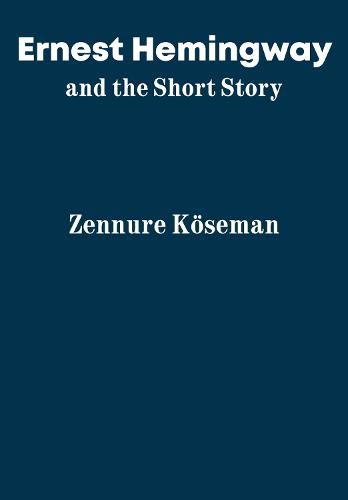Readings Newsletter
Become a Readings Member to make your shopping experience even easier.
Sign in or sign up for free!
You’re not far away from qualifying for FREE standard shipping within Australia
You’ve qualified for FREE standard shipping within Australia
The cart is loading…






Ernest Hemingway pioneered the short story genre by prioritizing economy of prose. He also wrote the shortest short story: his famous six-word "For Sale: Baby Shoes Never Worn!" The whole story embodies these words, which are semantically meaningful. Influenced by Edgar Allan Poe's "single-effect" theory, each story drives the reader to concentrate on a substantial controlling idea that directs the story from beginning to end.
A writer of the "Lost Generation," Hemingway went to Europe during World War I to master writing. He also served at the front. He used his experiences then, before, and after to craft a highly original approach to the short story, involving thematic issues around marriage, war, friendship, bullfighting, love, nature, and enemies. He also explored themes of alienation, isolation, existential philosophy, meaninglessness, nihilism, and aimlessness. Hemingway's wide perspective invites an intense subjectivity, uniting with readers who become an active part of the interpretation. Zennure Koeseman's new book offers a deft exploration of this craft.
$9.00 standard shipping within Australia
FREE standard shipping within Australia for orders over $100.00
Express & International shipping calculated at checkout
Ernest Hemingway pioneered the short story genre by prioritizing economy of prose. He also wrote the shortest short story: his famous six-word "For Sale: Baby Shoes Never Worn!" The whole story embodies these words, which are semantically meaningful. Influenced by Edgar Allan Poe's "single-effect" theory, each story drives the reader to concentrate on a substantial controlling idea that directs the story from beginning to end.
A writer of the "Lost Generation," Hemingway went to Europe during World War I to master writing. He also served at the front. He used his experiences then, before, and after to craft a highly original approach to the short story, involving thematic issues around marriage, war, friendship, bullfighting, love, nature, and enemies. He also explored themes of alienation, isolation, existential philosophy, meaninglessness, nihilism, and aimlessness. Hemingway's wide perspective invites an intense subjectivity, uniting with readers who become an active part of the interpretation. Zennure Koeseman's new book offers a deft exploration of this craft.